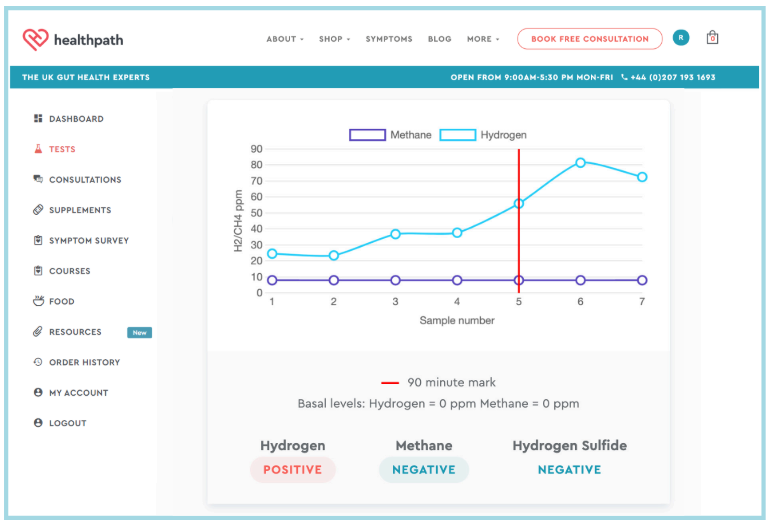Sibo tests in the UK
Let’s talk about Sibo! What does it mean? And what are the causes, symptoms, treatment and testing options for Sibo?
What is Sibo?
Small intestinal bacterial overgrowth (Sibo) is a condition where an abnormal amount of bacteria accumulates in the small intestine which disrupts normal digestive processes. (Most bacteria usually reside in the large intestine, not the small intestine.)
Sibo is often associated with other conditions like IBS (irritable bowel syndrome).
Sibo symptoms
Sibo symptoms include bloating, gas, abdominal pain, diarrhoea and sometimes constipation. People might also experience fatigue and nutrient deficiencies because Sibo can interfere with how your body absorbs food. These symptoms often overlap with other digestive issues, making it tricky to diagnose without specific tests.
Causes of Sibo
The causes of Sibo are not perfectly understood, however various factors can disrupt the normal movement or environment of the small intestine, allowing bacteria to grow excessively. These can include:
Impaired motility: Slow intestinal movement allows bacteria to build up in the small intestine where it shouldn’t
Structural issues: Things like diverticula or surgical alterations to the gut can trap bacteria
Medications: Drugs that affect normal gut flora or slow motility, like opioids, can cause problems
Dysbiosis: This means that the gut microbiome isn’t in balance, with not enough beneficial bacteria and too many harmful bacteria
Low levels of stomach acid: This can allow an overgrowth of bacteria in the small intestine
Risk factors
Older people are more at risk of Sibo because they may suffer from slow moving digestion or low stomach acid levels. They also tend to take more medication which may cause issues.
Sibo is also more common in females, people who are obese and in those with diabetes or IBS.
Treatment for Sibo
The treatment options for Sibo typically include:
Antibiotics: These are used to reduce bacterial overgrowth. The specific type of antibiotic may vary based on the individual's symptoms and the predominant gas produced (hydrogen or methane)
Dietary changes: Implementing a diet low in fermentable carbs (like the low FODMAP diet) can help reduce symptoms and bacterial growth
Prokinetics: These medications can help increase gut motility, preventing bacteria from settling and growing excessively in the small intestine
Sibo tests
Sibo tests typically involve a breath test that measures hydrogen and methane gases produced by bacteria in your small intestine. Here’s how it generally works:
Preparation: You may be asked to follow a special diet for a day or two before the test
Testing procedure: You drink a sugar solution and breathe into a device at regular intervals over a few hours to measure the gases in your breath
Analysis: High levels of hydrogen or methane suggest bacterial overgrowth
Test recommendation
Healthpath in the UK is a respected health testing company with an ‘excellent’ Trustpilot score of 4.5 out of 5. They offer a Sibo test along with after-test support to guide you to a solution.
The test is done at home and covers hydrogen and methane. Afterwards you get a simple report with your results. This test is trusted by the NHS so you can use it for discussions on your health with your GP or other NHS professional.
Below is an example of one part of the test report.
See more of a sample test report.
Further support
Healthpath also offers a package for a little more money which gives you a variety of extra support to guide you through next steps.
This includes:
a video from your practitioner
a review of your symptoms
a bespoke health plan
a personalised supplement plan
Sibo test cost
As of May 2024, the test along with the additional support mentioned above costs £195.




